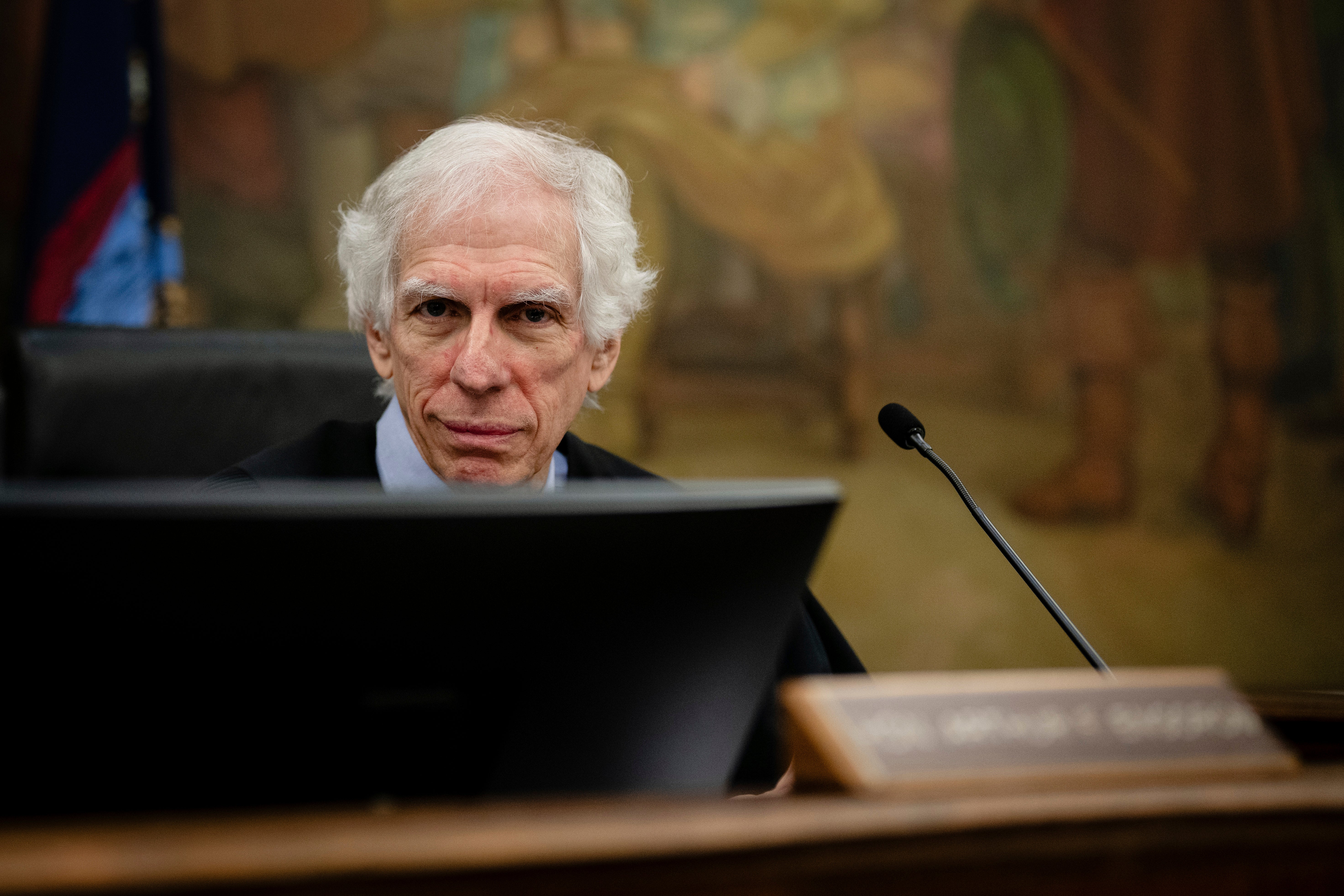Trump’s fraud trial judge faces probe after hotshot attorney claims he tried to advise him in $454m case
Attorney Adam Leitman Bailey claimed he spoke to Judge Arthur Engoron three weeks before he made his final judgment in the former president’s case
The judge in Donald Trump’s civil fraud trial is now under investigation after a hotshot New York real estate attorney claimed he gave him unsolicited advice ahead of the hotly-anticipated multi-million-dollar ruling, according to a report.
Attorney Adam Leitman Bailey told NBC New York that he spoke to Judge Arthur Engoron three weeks before he made his final judgment in the former president’s case, where he found Mr Trump, his two oldest sons, as well as their Trump Organization associates and properties liable for $464m for falsely inflating his assets.
“I actually had the ability to speak to him three weeks ago,” Mr Bailey told the outlet on February 16, the date of the judge’s decision.
“I saw him in the corner [near the courthouse] and I told my client, ‘I need to go.’ And I walked over and we started talking … I wanted him to know what I think and why…I really want him to get it right.”
This claim prompted the New York State Commission on Judicial Conduct to launch an investigation into the alleged interaction, NBC News reported. The commission’s administrator Robert Tembeckjian declined to comment on behalf of the judicial body, saying it “is constrained by a strict confidentiality statute.”
A spokesperson for the New York State’s Office of Court Administration has rejected Mr Bailey’s claim that he gave Judge Engoron advice.
“No ex parte conversation concerning this matter occurred between Justice Engoron and Mr. Bailey or any other person,” the spokesperson said in a statement to NBC New York.

“The decision Justice Engoron issued February 16 was his alone, was deeply considered, and was wholly uninfluenced by this individual,” the spokesperson said.
The Independent has reached out to representatives for Judge Engoron and Mr Bailey for comment.
Mr Bailey told NBC News that he knows the judge from appearing before him as an attorney in court “hundreds of times.”
The real estate attorney claimed that he had “explained to” Judge Engoron that the anti-fraud law, on which the case had been brought, was not typically used to dismantle a company, especially if there were no victims.
The judge “had a lot of questions, you know, about certain cases. We went over it,” Mr Bailey alleged.
Mr Trump’s legal team argued a similar point in court at trial.
New York Attorney General Letitia James’ office had argued that Mr Trump’s misrepresentation of assets had led to him receiving favorable loans, and in turn affecting the marketplace.
The judge concurred, writing in his decision that “materiality under this statute is judged not by reference to reliance by or materiality to a particular victim, but rather on whether the financial statement ‘properly reflected the financial condition’ of the person to which the statement pertains.”
In a separate, later interview Mr Bailey gave to NBC New York, he echoed his previous statements about his interaction with the judge.
He then added that, although the men didn’t mention Mr Trump by name, he believed the judge understood him to be talking about the former president’s civil fraud case: “Well, obviously we weren’t talking about the Mets.”
New York’s judicial rules of conduct state that “a judge shall not initiate, permit, or consider ex parte communications, or consider other communications made to the judge outside the presence of the parties or their lawyers concerning a pending or impending proceeding.”
However, the rules allow for an exception, stating: “A judge may obtain the advice of a disinterested expert on the law applicable to a proceeding before the judge if the judge gives notice to the parties …and affords the parties reasonable opportunity to respond.”
Christopher Kise, an attorney on Mr Trump’s legal team, told NBC New York: “The code doesn’t provide an exception for ‘well, this was a small conversation’ or ‘well, it didn’t really impact me’…The code is very clear.”
Join our commenting forum
Join thought-provoking conversations, follow other Independent readers and see their replies
Comments
Bookmark popover
Removed from bookmarks